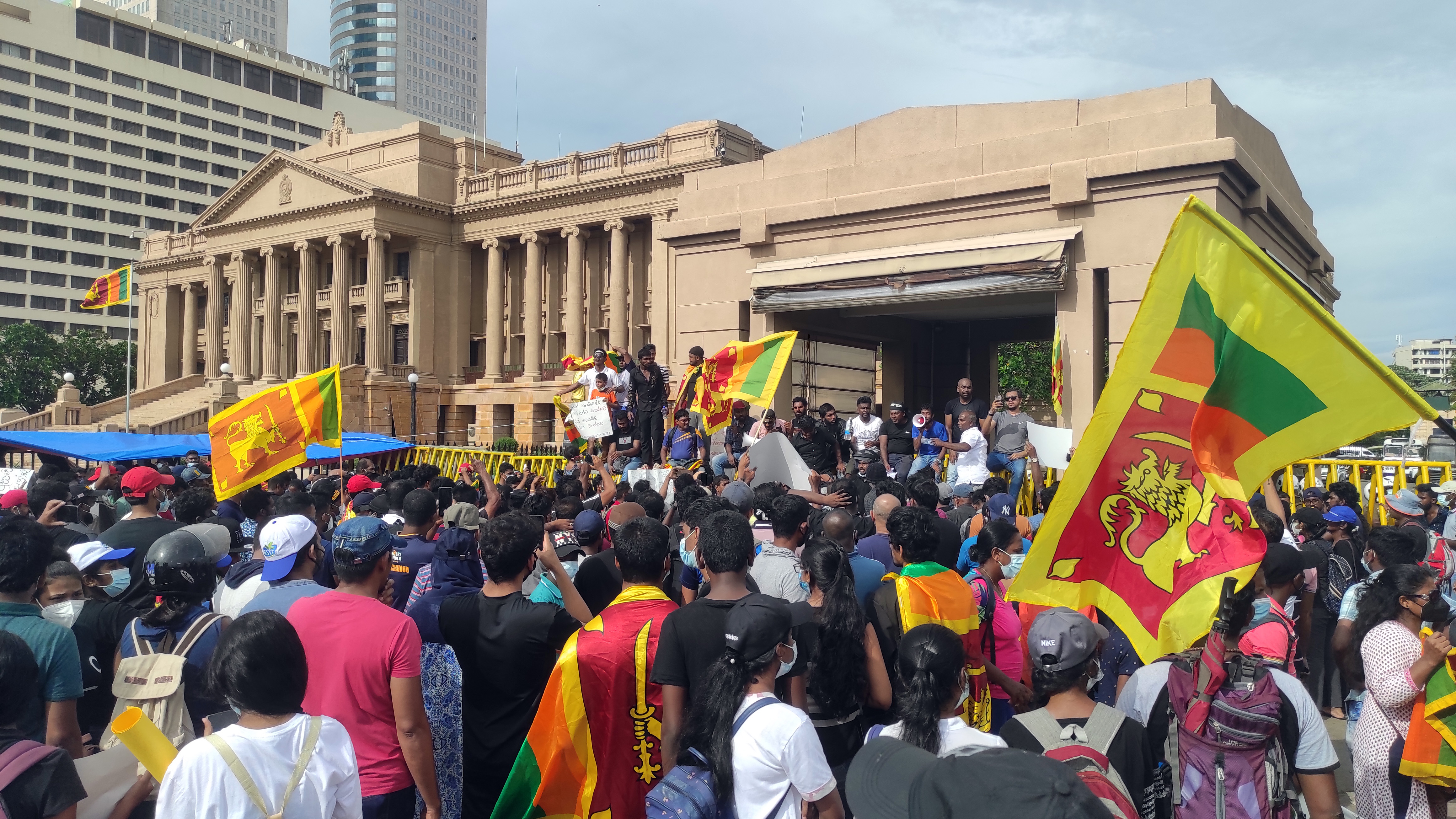In a shocking discovery that has sent ripples across the international community, ongoing excavations at a mass grave site in Chemmani, in northern Sri Lanka, have uncovered more than 100 skeletal remains, including those of children and infants. The grim findings at Chemmani have reignited global attention on one of the world’s most severe cases of unresolved enforced disappearances. As recently recognized in a statement dated July 27, 2025 by the International Commission of Jurists (ICJ), Sri Lanka has “one of the highest numbers of cases of unresolved enforced disappearances worldwide, with estimates ranging between 60,000 and 100,000 individual cases” during the brutal 26-year civil war.
The discovery of this mass grave traces back to the brutal rape and murder of 18-year-old Tamil schoolgirl named Krishanthi Kumaraswamy in 1996 by soldiers of the Sri Lankan Army. When her mother, brother, and a neighbor went searching for her, they too were killed.
The Chemmani site first entered public consciousness in 1998 when a Sri Lankan soldier, Lance Corporal Somaratne Rajapakse, made a stunning court confession. Convicted for the rape and murder of Kumaraswamy, Rajapakse testified that over 300 to 400 bodies had been buried in Chemmani.
However, it was not until February 2025 when a fraction of the mass graves alleged by Rajapakse were discovered as construction workers preparing land for a Hindu crematorium stumbled upon human bones. What they found has become a haunting testament to the atrocities that the Krishanthi case first brought to light.
Among the recovered evidence are heartbreaking personal belongings that tell stories of lives cut short: “a blue school bag labeled ABC was found with a small child’s skeleton along with a toy, glass bangles, earrings, pieces of fabric and a single Bata slipper.”
A Tamil Politician’s Warning Ignored for 27 Years
The revelation by Rajapakse in 1998 of mass graves in Chemmani prompted Sri Lankan Member of Parliament, Neelan Tiruchelvam, to deliver a speech in the nation’s Parliament on July 22, 1998 discussing what needed to be done to properly investigate the mass grave allegations. His words, largely ignored at the time, now read like a blueprint for the investigation Sri Lanka desperately needs today.
Tiruchelvam, echoing a statement by the Secretary of the Civil Rights Movement of Sri Lanka, warned that “the excavation of a mass burial site where many bodies may be packed into one place, poses technical problems much greater than the exhumation of individual graves,” and emphasized the need for expertise to avoid “irreversible destruction of vital evidence in the process.” Citing the UN Model Protocol, he stressed that “a burial recovery should be handled with the same exacting care given to a crime-scene search” and that “disinterment by untrained persons should be prohibited.” He underscored that such work must be conducted or supervised by a “consulting anthropologist” to prevent the loss of valuable information and the risk of generating false data.
Tiruchelvam outlined the three UN-recommended phases of investigation: the collection of “antemortem data” from relatives and witnesses; the “archaeological phase” involving professional excavation and careful documentation of remains; and the “laboratory phase” focusing on analysis through X-rays, trauma identification, and possible DNA testing.
He pointed to “the large body of knowledge and expertise” developed in forensic anthropology as a result of excavation of mass graves in “Argentina, El Salvador, Guatemala, Iraq, the former Yugoslavia and Ethiopia.”
But Tiruchelvam’s most urgent warning was one of accountability. “The public has the right to a full, impartial, and professional investigation into the alleged graves in Chemmani.”
That investigation never came. A 1999 probe yielded only 15 skeletons, far short of Rajapakse’s claim. The probe did not progress beyond initial excavations, and no senior military officials were ever held accountable in relation to the Chemmani allegations.
Call For International Oversight
The ICJ has issued urgent calls for proper investigation. As Mandira Sharma of the ICJ asserted:
We must remember that behind every set of remains lies a family that has endured unimaginable suffering. These forensic investigations must be conducted with the utmost respect for human dignity and with the full participation of families. International oversight is required to ensure that these processes meet the highest professional and legal standards that the gravity of these crimes warrants
What makes international oversight absolutely critical is Sri Lanka’s own admission that it lacks critical investigative infrastructure. Sri Lanka’s Office on Missing Persons Commissioner Mirak Raheem acknowledged:
“we don’t have a DNA bank and specialized DNA laboratories that work with highly degraded remains,” while time pressures mount as “there is a serious risk of losing so many parents and family members of the disappeared who may pass on without sharing their DNA or critical information about the missing person”
The excavation has become a defining moment for Sri Lanka’s recently elected President Anura Kumara Dissanayake’s government, who pledged to address Tamil grievances during his election campaign.
United Nations High Commissioner for Human Rights Volker Türk’s visit to the mass grave site in June 2025 underscores global attention on the case. His presence highlighted what many see as Sri Lanka’s last opportunity to break a cycle of impunity that has persisted for decades.
Protestors called for international monitoring of the excavation process, community-based technical aid, and stronger UN accountability measures against Sri Lanka.
As a signatory of major human rights treaties, including the International Convention for the Protection of All Persons from Enforced Disappearances, Sri Lanka’s obligations under international law are clear.
The world is watching as Sri Lanka confronts the buried evidence of its past. The question is now whether the government will have the courage to follow the evidence wherever it leads, with the international oversight and expertise that Tiruchelvam recognized was essential from the very beginning.


